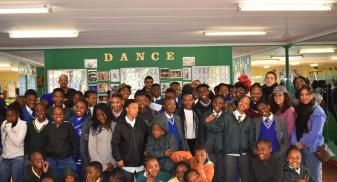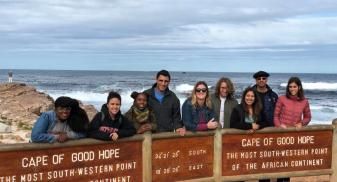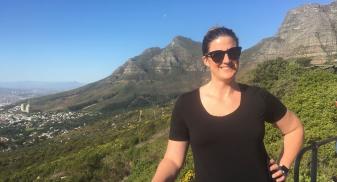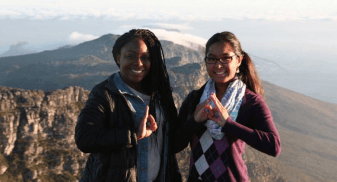Summer: Rutgers- Education, Culture and Change in South Africa
The Program
Ready to learn about culture and the power of forgiveness?
Explore the complex social and educational issues facing South Africans through direct engagement with educators and learners in township schools and NGOs working to uplift and empower South Africans and the “Born-Frees”. Delve into South Africa's past and present, discovering the redemptive power of forgiveness, reconciliation, and change. Meet internationally renowned scholars, experts and change agents, as well as university-aged peers at the University of Cape Town.
Program Locations
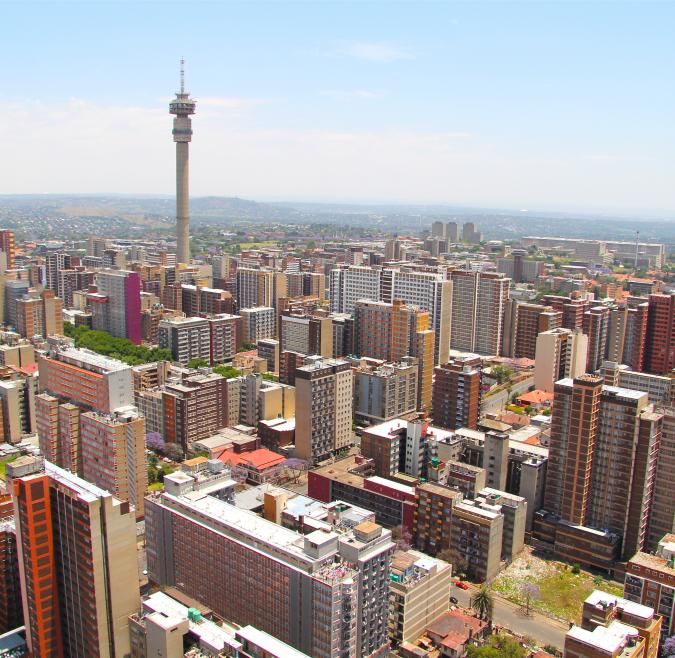
South Africa
Johannesburg
Johannesburg—or Joburg" or "Jozi" as some prefer to call it—offers visitors an experience as unique and diverse as the city itself. Despite being a major financial and economic hub for not only South Africa but also sub-Saharan Africa, the city's living conditions vary immensely. The city hosts a dynamic cultural scene and has many historical sites and museums which capture remarkable narratives of the past.

South Africa
Cape Town
Cape Town is not only the most popular international tourist destination in South Africa, but Africa as a whole. This is due to its good climate, natural setting, and well-developed infrastructure. The city has several well-known natural features that attract tourists, most notably Table Mountain, which can be experienced either by hiking up, or by taking a cable car. You will take a ferry to visit Robben Island Museum, the notorious prison where Nelson Mandela was imprisoned for 18 years.
Academics
This program is open to graduate level students, or fourth year undergraduates with demonstrated interest in education (by special permission only). This program is open to non-Rutgers affiliated people with a Bachelor's degree or higher.
The program's 2024 syllabus can be found here. Please note, this is a sample syllabus, and all contents are subject to change. You can also read the 2025 FAQs here.
The goal of the Education, Culture, and Change program is to provide a culturally immersive experience in which students are provided with on-going opportunities to directly experience familiar social challenges in a different cultural context. Through lived experiences, service activities, and self-reflection, students will be encouraged to critically examine their own beliefs and assumptions, while developing their own personal and professional competencies.
Specific course objectives include:
- examining social conditions and systemic barriers that support social inequities
- increasing cultural awareness and cultural knowledge
- challenging culturally biased beliefs and assumptions
- developing a commitment to social advocacy and solidarity in support of individuals and their communities
- understanding oneself and others through critical and reflective thinking
This course combines lectures and required readings and large and small group discussions, both synchronous and asynchronous, with South African scholars and educational experts. As a hybrid course, assignments and class sessions will take place, as scheduled, in the online classroom established through accessing onlinelearning.rutgers.edu/canvas.
For information about Study Abroad credit transfer, registration, and transcripts please visit the Academics section of our website.
Read Ph.D. candidate and Summer 2018 participant Ajua Kouadio's blog about the 2019 program here.
Housing and Meals
Students will stay in double rooms and share facilities with other students while residing in Johannesburg and Cape Town. All accommodations will include daily breakfast.
Financial Information
Program Costs
| NJ Resident | non-NJ Resident | |
|---|---|---|
| Undergrad | $4,850 | $5,200 |
| Grad | $5,070 | $5,400 |
Program Cost includes:
• Tuition
• Housing
• Some Meals
• Excursions
• In-country flights
• Administrative Fees
• Emergency Medical Access Abroad
Out-of-Pocket Costs
| Airfare | $2,000 |
| Meals | $300 |
| Personal Expenses | $200 |
| Total | $2,500.00 |
Out-of-Pocket Cost includes:
The above costs are estimations and represent the known out-of-pocket costs students encounter during their time abroad.
Some of these expenses will be paid for prior to going abroad, such as an airline ticket, while some of these expenses, such as meals, will be paid in-country as part of your daily expenses. As you plan, you will need to budget these costs and spend wisely throughout your time abroad.

